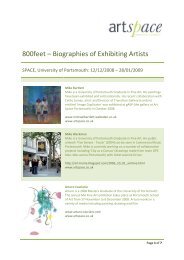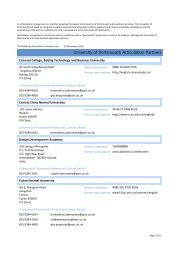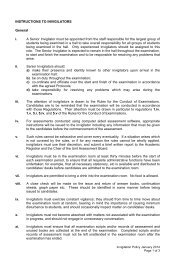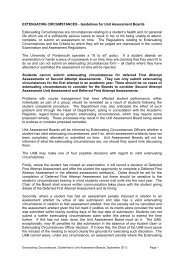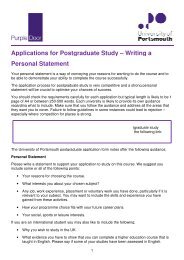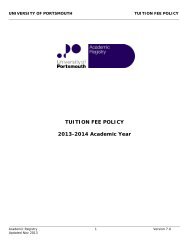9.5. French Indochina. Dr Nikki Cooper, University of Bristol.
9.5. French Indochina. Dr Nikki Cooper, University of Bristol.
9.5. French Indochina. Dr Nikki Cooper, University of Bristol.
You also want an ePaper? Increase the reach of your titles
YUMPU automatically turns print PDFs into web optimized ePapers that Google loves.
<strong>French</strong> <strong>Indochina</strong><br />
<strong>Dr</strong> <strong>Nikki</strong> <strong>Cooper</strong>, <strong>University</strong> <strong>of</strong> <strong>Bristol</strong><br />
Keywords<br />
colonialism; Dien Bien Phu; la Fédération indochinese; Ho Chi Minh; Yen Bay<br />
uprising<br />
<strong>French</strong> <strong>Indochina</strong> after the Second World War<br />
Q. When and why did the <strong>French</strong> colonize <strong>Indochina</strong>?<br />
A. The colonization <strong>of</strong> the various territories which later made up Indochine française<br />
took place over a number <strong>of</strong> years. The <strong>French</strong> conquest began in the South, in<br />
Cochinchina, in the 1860s. Throughout the next 30 years, France pushed steadily<br />
North, gaining territories in Annam and Tonkin, and also Cambodia and Laos. These<br />
territories were formally brought together under the name Indochine française in<br />
1885.
This desire to establish a <strong>French</strong> empire in South-East Asia was partly driven<br />
by imperial rivalry with Great Britain. <strong>French</strong> <strong>Indochina</strong> was intended to rival British<br />
India: the <strong>French</strong> created their ‘Perle de l’Extrême-Orient’ in response to the ‘Jewel<br />
in the Crown’ that India represented for Britain.<br />
Many historians argue, however, that the ‘conquest’ <strong>of</strong> <strong>Indochina</strong> was as a<br />
result <strong>of</strong> ‘la force des choses’ rather than the result <strong>of</strong> any concerted plan on France’s<br />
behalf. What is meant here is that a number <strong>of</strong> merchants and explorers had been<br />
acting autonomously in the region in their own interests, without any specific<br />
directives from Paris. During the 1870s and 1880s, many in France were vehemently<br />
against <strong>French</strong> action in <strong>Indochina</strong>, believing it to be wasteful <strong>of</strong> ‘l’or et le sang<br />
français’ at a time when France should be concentrating on domestic matters. Jules<br />
Ferry, nicknamed ‘Le Tonkinois’ because <strong>of</strong> his interest in <strong>Indochina</strong>, fell from power<br />
due to his pursuit <strong>of</strong> further expansion. Once back in power, he sought to justify<br />
colonial conquest in terms <strong>of</strong> regaining <strong>French</strong> prestige and ‘grandeur’.<br />
Q. Once <strong>French</strong> power was established, how did the colonial authorities rule?<br />
What policies did they adopt towards the native populations?<br />
A. Colonialism is predicated upon a hierarchical relationship: dominé/dominateur;<br />
inférieur/supérieur. Like all colonial systems, that in <strong>French</strong> <strong>Indochina</strong> relied upon<br />
the unequal sharing <strong>of</strong> power and privilege.<br />
In creating a system <strong>of</strong> colonial government in <strong>Indochina</strong>, France welded<br />
together the old with the new. The system was a hotch-potch <strong>of</strong> traditional<br />
Vietnamese institutions, on which were superimposed modern <strong>French</strong> ones. Nor were<br />
the different areas <strong>of</strong> <strong>Indochina</strong> governed in the same way. In Cochinchina, which<br />
was the only full colony, a Governor General ruled from Saigon, and <strong>French</strong> law was<br />
applicable. Annam and Tonkin, however, and later Cambodia and Laos, each had the<br />
status <strong>of</strong> a protectorate. Annam and Tonkin were governed by the Hanoi Governor<br />
General, and by two résidents supérieurs, one in Hanoi and one in Hué. Nonetheless,<br />
the Vietnamese monarchy in Hué and the pre-colonial bureaucracy were allowed to<br />
remain and each province in Annam and Tonkin had two parallel administrations: one<br />
led by a <strong>French</strong> chief, and the other led by a Vietnamese chief. There was little<br />
difference between the two systems. Appointed by the Minister for Colonies, the<br />
Governor General <strong>of</strong> <strong>Indochina</strong> could suspend all local councils if he deemed it<br />
necessary. In almost all areas <strong>of</strong> colonial life he ruled by personal decree, with the<br />
approval <strong>of</strong> Paris. The Governor General had power over the entire political<br />
federation known as l’Union indochinoise.<br />
France attempted to develop <strong>Indochina</strong> (mise en valeur), and to bring it into<br />
the ‘modern’ era by developing its transport networks, industry, hospitals, and<br />
schools. In many ways, France’s colonial project overseas was the same irrespective<br />
<strong>of</strong> the territories in question: to recreate a replica <strong>of</strong> France. This was done in the<br />
spirit <strong>of</strong> universalism, enshrined in the Déclaration des <strong>Dr</strong>oits de l’Homme et du<br />
Citoyen. Those very same rights, however, were severely curtailed when it came to<br />
the status <strong>of</strong> the indigenous Indochinese: few benefited from education, few enjoyed<br />
the wealth <strong>of</strong> the colony, and very few rose to positions <strong>of</strong> relative power within the<br />
colonial government. Besides which, the indigenous Indochinese were deprived <strong>of</strong> the<br />
fundamental right to rule themselves.<br />
Q. When and how was <strong>French</strong> rule challenged?
A. There had been resistance to the imposition <strong>of</strong> <strong>French</strong> colonial rule from the very<br />
start. Rebellion in <strong>Indochina</strong> was traditionally nurtured by the intellectual class: the<br />
Mandarin leaders, who were able to disseminate anti-<strong>French</strong> sentiment effectively<br />
through the education system.<br />
It is ironic that France <strong>of</strong>ten cultivated the very leaders who later were to head<br />
nationalist movements in <strong>Indochina</strong>. An intellectual bourgeois elite emerged in the<br />
1920s who had pr<strong>of</strong>ited from a <strong>French</strong> university education, and who returned to<br />
<strong>Indochina</strong> thoroughly imbued with notions <strong>of</strong> Liberté, égalité and fraternité.<br />
The Yen Bay uprising was probably the most serious <strong>of</strong> the rebellions in<br />
<strong>Indochina</strong>, and took place on 9–10 February 1930. The Vietnamese nationalist<br />
movement (VNQDD – Viet Nam Quoc Dan Dang, created in 1927) attacked the<br />
<strong>French</strong> garrison post at Yen Bay. Joined by a significant number <strong>of</strong> indigenous troops<br />
stationed there, they seized the arms depot and killed a number <strong>of</strong> <strong>French</strong> <strong>of</strong>ficers.<br />
Although the uprising was part <strong>of</strong> a series <strong>of</strong> rebellions, demonstrations, attacks and<br />
protests, the fact that <strong>French</strong> <strong>of</strong>ficers had been killed called for a show <strong>of</strong> strength on<br />
the part <strong>of</strong> the colonial authorities. Eighty-three indigenous ‘rebels’ were sentenced to<br />
death, 13 <strong>of</strong> whom were guillotined in June 1930 after a distinctly undemocratic trial.<br />
The <strong>French</strong> airforce pursued sympathizers into the surrounding country,<br />
indiscriminately bombing assembled crowds and ‘suspect’ villages.<br />
Marxist thought had also become more widespread among the indigenous<br />
populations <strong>of</strong> <strong>Indochina</strong>. Nurtured both by Moscow and the <strong>French</strong> Communist Party<br />
(PCF), Nguyen Ai Quoc, alias Ho Chi Minh (pictured below), established the<br />
Indochinese Communist Party in 1930.<br />
Before the Second World War, however, nationalist thought in <strong>Indochina</strong><br />
remained the preserve <strong>of</strong> the Indochinese intellectuals and the class <strong>of</strong> bourgeoisie<br />
who had been prevented from scaling the social ladder by colonial rule. The peasant<br />
majority in <strong>Indochina</strong> were little motivated by such concerns. France felt it had little<br />
to fear from these largely peaceful and ‘docile’ populations.<br />
Q. What impact did the Second World War have upon <strong>French</strong> <strong>Indochina</strong>?<br />
A. The military defeat <strong>of</strong> France left <strong>Indochina</strong> without support and open to Japanese<br />
aggression. <strong>Indochina</strong> had only a small colonial army and limited supplies. The<br />
Governor General in power in <strong>Indochina</strong> at the fall <strong>of</strong> France was Catroux. He<br />
initially declared himself in favour <strong>of</strong> de Gaulle and Free France but was put under<br />
immense pressure from both the Japanese and the Pétain government. The Japanese<br />
government sought assurance that there would be no transport <strong>of</strong> arms or supplies to<br />
China through <strong>Indochina</strong>. Catroux sought the support <strong>of</strong> other Generals throughout<br />
the empire, hoping for reinforcements and munitions to enable him to resist the<br />
Japanese but these were not forthcoming. In June 1940, Catroux was forced to cede to<br />
Japanese demands and closed railway lines which were being used to transport arms<br />
to the Chinese front. The Japanese pushed for further concessions, demanding the<br />
right to send out control missions to check that <strong>Indochina</strong>’s frontiers had been closed.
Catroux was then replaced by Decoux, a Vichyite. The Japanese continued to<br />
pressurize the new Governor General, who yielded to their demands to the right to<br />
occupy airfields and to travel freely throughout <strong>Indochina</strong>. The Japanese recognized<br />
<strong>French</strong> sovereignty in <strong>Indochina</strong> and the territorial integrity <strong>of</strong> the area. In return,<br />
however, France recognized the Japanese interest in the area, agreed to discuss<br />
economic sanctions, and to grant military facilities in <strong>Indochina</strong> to Japan.<br />
The Japanese seemed content to leave the framework <strong>of</strong> <strong>French</strong> control in<br />
place in <strong>Indochina</strong>, but at a price. After the attack on Pearl Harbor, the Japanese<br />
infiltrated Hanoi and took up key positions throughout the city. The Mikado issued an<br />
ultimatum to the <strong>French</strong>, demanding assurances that <strong>Indochina</strong> would do nothing to<br />
hinder the activities <strong>of</strong> the Japanese forces. If Decoux supplied these assurances, his<br />
government would be left intact. If he refused, Japan threatened to take over<br />
<strong>Indochina</strong>. An agreement was reached on 9 December 1940. <strong>French</strong> sovereignty was<br />
confirmed. The <strong>French</strong> still controlled their own army, and the administration <strong>of</strong><br />
<strong>Indochina</strong>. Japanese forces were free to fight the war against the Allies from<br />
Indochinese soil.<br />
Governor General Decoux modelled his government in <strong>Indochina</strong> on Pétain’s<br />
Vichy regime. He ruthlessly applied the laws <strong>of</strong> Vichy against Gaullists, liberals,<br />
freemasons and Jews. However, as war in the Pacific was drawing to a close, the<br />
Japanese moved suddenly to disarm the <strong>French</strong> and seize sovereignty <strong>of</strong> <strong>Indochina</strong> on<br />
9 March 1945. On 11 March they set in place a puppet regime under the Emperor Bao<br />
Dai, who declared Vietnam independent <strong>of</strong> France. The <strong>French</strong> response was to<br />
reassert their authority immediately. On 24 March 1945, de Gaulle announced the<br />
creation <strong>of</strong> the Fédération indochinoise, which was to have a new status within the<br />
recently conceived Union française. Before the <strong>French</strong> could act, however, an<br />
indigenous group led by Ho Chi Minh came to power in Tonkin. On 2 September<br />
1945, Ho and his guerrillas proclaimed the birth <strong>of</strong> the Democratic Republic <strong>of</strong><br />
Vietnam. Bao Dai renounced his imperial title, and became part <strong>of</strong> Ho Chi Minh’s<br />
new government.<br />
Q. What were the causes <strong>of</strong> the <strong>Indochina</strong> War, 1945–54?<br />
A. France had no intention <strong>of</strong> giving up its empire after the Second World War, and<br />
was determined to reassert its colonial authority over <strong>Indochina</strong>. France was afraid<br />
that both the Chinese and Russians would try to influence the course <strong>of</strong> events in<br />
<strong>Indochina</strong> in the post-war period. They also feared that the British, whose army were<br />
overseeing the capitulation <strong>of</strong> Japanese troops, would try to seize <strong>Indochina</strong> for<br />
themselves. Meanwhile, Ho Chi Minh had taken advantage <strong>of</strong> France’s weakened<br />
position to claim power. In response to this rather confused state <strong>of</strong> affairs, France<br />
attempted what was essentially a war <strong>of</strong> reconquest in <strong>Indochina</strong>.<br />
Q. Why did the <strong>French</strong> lose?<br />
A. The <strong>French</strong> lost because they underestimated their enemy. Initially, they<br />
underestimated the extent <strong>of</strong> nationalist sentiment among the Indochinese. France had<br />
not believed that Ho Chi Minh would be able to rally the majority <strong>of</strong> Indochinese to<br />
his cause. Second, they underestimated the military capability <strong>of</strong> the Indochinese: the<br />
<strong>French</strong> army was used to waging conventional wars, and the Indochinese surprised<br />
them with their unconventional methods, their tenacity and their courage.
The Battle <strong>of</strong> Dien Bien Phu, which effectively marked the end <strong>of</strong> the <strong>French</strong><br />
war in <strong>Indochina</strong>, was a terrible and humiliating defeat for the <strong>French</strong> Army. It had<br />
believed that this ‘fortress’ in the hills on the border <strong>of</strong> Laos and Tonkin (see below),<br />
with its 10,000 <strong>French</strong> troops, was impregnable; yet General Giap’s forces waged a<br />
relentless and implacable guerrilla campaign against the <strong>French</strong> forces for 55 violent<br />
and bloody days.<br />
The defeat at Dien Bien Phu led France to sign the Geneva Accords (21 July 1954)<br />
which ended the <strong>French</strong> presence in <strong>Indochina</strong>.<br />
Q. What impact did the Indochinese War have upon the Fourth Republic?<br />
A. It was in <strong>Indochina</strong> that the Fourth Republic experienced, and lost, its first colonial<br />
war. Seemingly, however, it did not learn the lessons from this first defeat and went<br />
on to wage a bitter and bloody war in Algeria, hot on the heels <strong>of</strong> the Indochinese<br />
War. The <strong>French</strong> Army was in disarray after the Indochinese experience, and the<br />
seeds <strong>of</strong> discontent and disaffection which were sown during that conflict came to<br />
bear fruit, in a dramatic and threatening way, during the Algerian War.<br />
Key publication by <strong>Nikki</strong> <strong>Cooper</strong><br />
France in <strong>Indochina</strong>: Colonial Encounters (New York and Oxford: Berg, 2001).<br />
Further reading<br />
P. Brocheux and D. Hémery, Indochine: La colonisation ambiguë (Paris: Editions la<br />
Découverte, 1995).<br />
D. Hémery, Ho Chi Minh: De l'Indochine au Vietnam (Paris: Découverte<br />
Gallimard/Histoire, 1990).<br />
P. Norindr, Phantasmatic <strong>Indochina</strong>: <strong>French</strong> Colonial Ideology in Architecture, Film,<br />
and Literature (Durham, NC: Duke <strong>University</strong> Press, 1996).<br />
A. Ruscio, La Guerre française d'Indochine, 1945–54 (Bruxelles: Editions complexe,<br />
1992).



